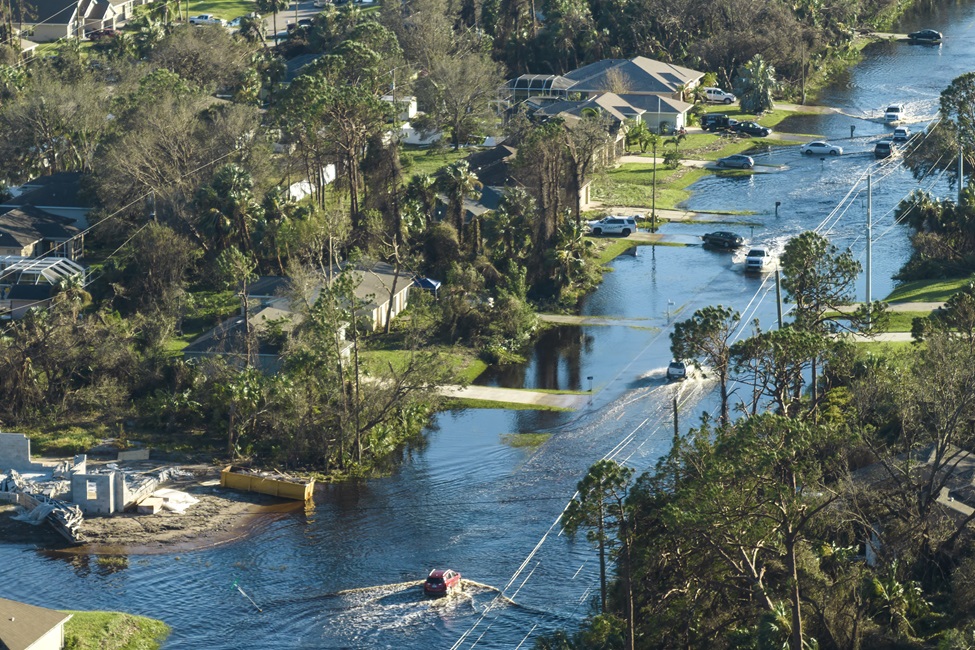90% of Floridians Believe Climate Change is Happening

Floridians support strengthening the state's resilience to the effects of climate change because they are experiencing it.
The latest edition of Florida Atlantic University’s “Florida Climate Resilience Survey,” found that 90% of Floridians believe that climate change is happening. In comparison, a recent Yale University survey showed 72% of all Americans believe climate change is happening. The FAU survey includes questions on beliefs about climate change, experience with extreme weather events and support for climate-related policies.
The Florida Climate Resilience Survey also shows belief in human-caused climate change has surged among Florida Independents while slipping among Republicans in the state since last fall.
But despite these changes, the latest edition of the survey found enduring support among Floridians for increased government action to address the consequences of a warming planet. The survey found 68% of all respondents want state government to do more and 69% want the federal government to do more to address climate change, a finding consistent with previous surveys.
“Floridians support strengthening our resilience to the effects of climate change because they are experiencing it. The urgency to act means debate over causes is largely irrelevant,” said Colin Polsky, Ph.D., founding director of FAU's School of Environmental, Coastal, and Ocean Sustainability (ECOS), a professor in geosciences, and director of the FAU Center for Environmental Studies (CES) within the Charles E. Schmidt College of Science.
Among the 58% of Floridians who believe human activity is the cause of climate change, the survey found changing attitudes based on party affiliations. Among Floridians who report no party affiliation, belief that climate change is caused by human activity increased by 11% since the last survey in September 2023 (to 64% in the latest survey). But belief in human-caused climate change among Florida Republicans declined during that time, dropping to 40% from 45%.
The survey also found noteworthy differences in opinion based on the age of the respondents. Respondents under age 50 were more likely to believe that human activity is the cause of climate change than those 50 and older (66% to 50%) and more likely to want state government to do more to address its impacts (77% to 59%).
“Global warming became a major public issue in 1988. The age 50 cutoff is therefore a good proxy for separating people whose formative years included this issue versus those who did not,” said Polsky.
The latest survey found that 67% of Floridians believe climate change should be taught in schools. More than two-thirds of respondents have supported climate education in classrooms in nine of the 10 surveys conducted since 2019.
Florida Democrats (87%) and independents (68%) expressed the highest level of support for climate education in the latest survey, but even a majority of Republicans expressed this belief (52%).
“This abiding majority support for K-12 teaching climate change confirms the premise that Floridians want more climate change awareness and action regardless of the cause,” said Polsky.
The survey also found falling support for solar power as the primary form of energy production that Florida should be supporting for the future: 51% of all respondents support that statement, a decrease of 4% since last fall.
This decline has been happening since solar energy reached peak support of 62% in September 2022, but the recent drop was most pronounced among Florida Republicans. While support for solar remained consistent among Florida Democrats and independents since the last survey, such support fell 9% among Republican respondents.
Overall, most respondents said that climate change sparked their concern for the well-being of future generations (68%). But less than half of all respondents (48%) said they would be willing to pay $10 a month to strengthen Florida’s infrastructure to weather hazards.
CES has conducted the Florida Climate Resilience Survey since October 2019 and now does so every spring and fall. The latest edition was conducted in English and Spanish from March 18-21. The sample consisted of 1,400 Floridians, ages 18 and older, with a survey margin of error of +/- 2.53 percentage points.
For more information, survey results and full cross-tabulations, visit https://www.ces.fau.edu/ces-bepi/ or contact Colin Polsky, Ph.D., at cpolsky@fau.edu.
-FAU-
Latest News Desk
- FAU Harbor Branch Announces 2025 Ocean Science Lecture SeriesFlorida Atlantic University's Harbor Branch Oceanographic Institute announced the lineup for its annual "John & Barbara Ferrera Ocean Science Lecture Series."
- FAU, Flagler Credit Union Announce Football Stadium Naming PartnershipA historic, 15-year football stadium naming partnership between Florida Atlantic University Athletics and Flagler Credit Union was approved by FAU's Board of Trustees during a special meeting today.
- FAU's Randy D. Blakely, Ph.D., Honored as a Prestigious ASPET FellowRandy D. Blakely, Ph.D., a highly regarded neuroscientist and pharmacologist, is among an extraordinary group selected by the American Society for Pharmacology and Experimental Therapeutics.
- Study Uses AI to Interpret American Sign Language in Real-timeA first-of-its-kind FAU engineering study is breaking barriers by accurately capturing complex hand gestures in sign language using computer vision.
- FAU Celebrates Fall 2024 GraduatesFlorida Atlantic University conferred more than 2,700 degrees over the course of five in-person commencement ceremonies in the Carole and Barry Kaye Performing Arts Auditorium.
- FAU Engineering Wins Esteemed JFM 'Emerging Scholar Best Paper Prize'FAU engineering researchers have won the Journal of Fluid Mechanics' 2023 "Emerging Scholar Best Paper" award, which was selected from among nearly 400 eligible papers published in the journal.






